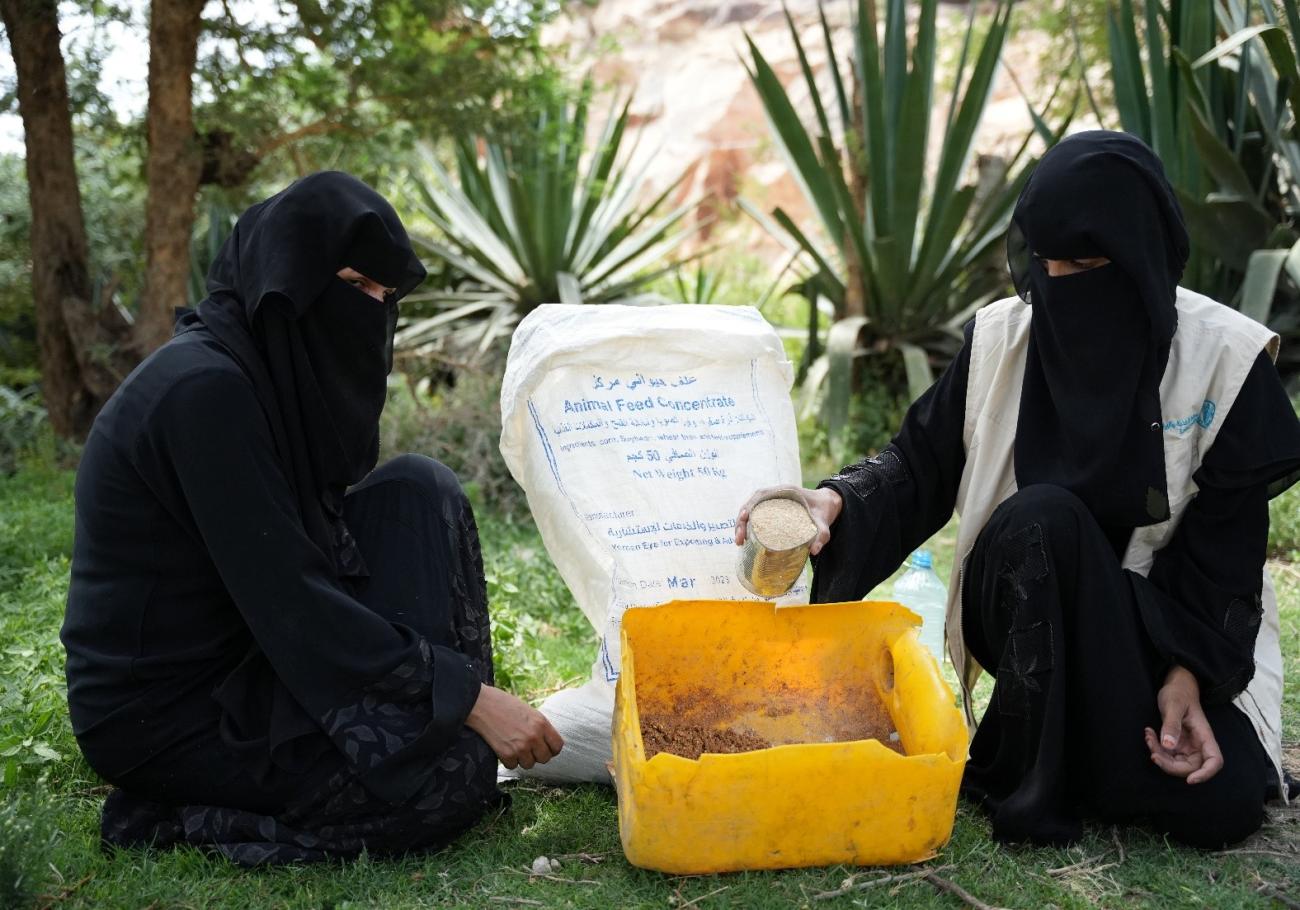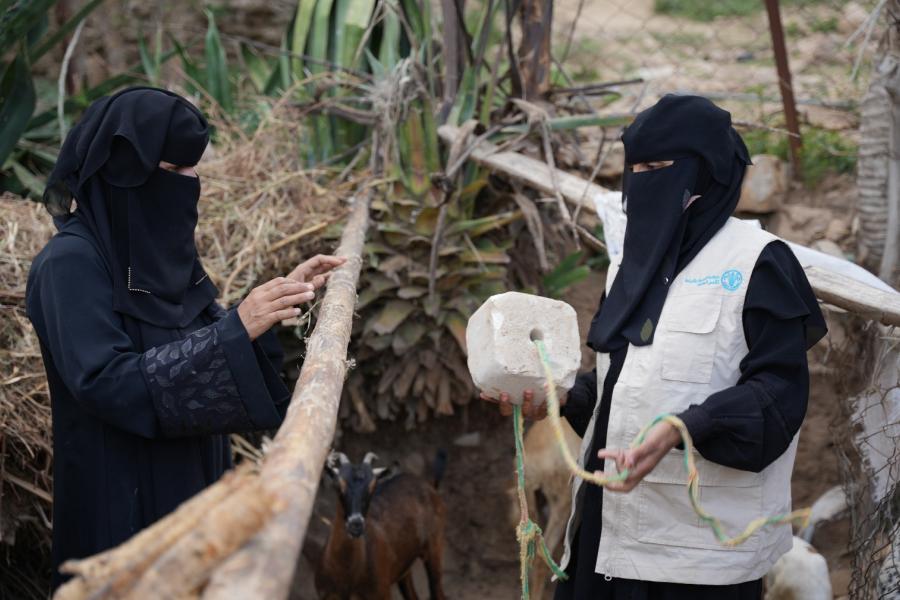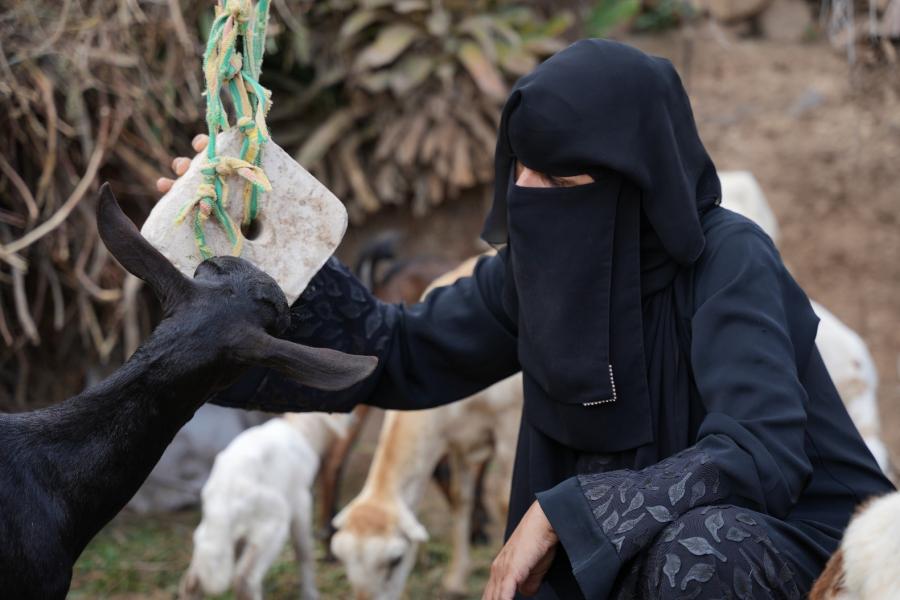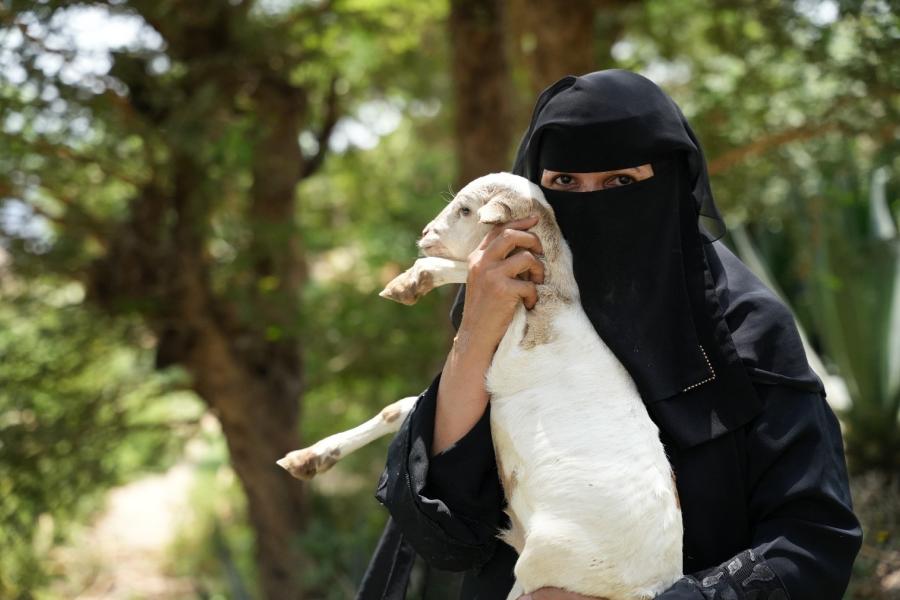FAO Yemen: Empowering Yemen's Livestock Breeders: FAO's Vital Support Restores Livelihoods

Raqiba, a Yemeni woman, receives support from FAO to sustain her family through livestock breeding.
Raqiba Abdullah Al-Akhali, a 35-year-old resident of Al-Akahela, a sub-district of Al Maqatirah in Lahj governorate, has faced numerous challenges due to the conflict in Yemen. After being displaced, Raqiba's husband suffered a disability and developed a chronic illness, leaving her as the sole breadwinner for their family, which includes him and their daughter. “I primarily rely on daily wages for income, in addition to breeding and selling livestock to provide our basic needs,” Raqiba says.
Overcoming challenges
Raqiba encountered numerous challenges like her husband's chronic illness that rendered him unable to assist in rearing and raising livestock. This led to decreased production, both in terms of milk and fattening, due to the expensive and low-quality feed used. Additionally, Raqiba lacked knowledge of modern livestock feeding practices, compounding her challenges.
“The high price of livestock feed and nutritional supplements posed a problem further compounded by my husband's declining health and inability to take our livestock to the pasture daily. This unfortunate situation didn’t not only exacerbated the deterioration of our living conditions but also added to the difficulties we were already facing,” she clarifies.

Raqiba relies on selling sheep to generate the income she uses to purchase essential food items such as oil, sugar, and wheat.
“Before FAO’s intervention, I faced severe challenges in livestock feeding, primarily due to the exorbitant cost of feed, persistent drought, and a significant decline in animal production,” says Raqiba.
Raqiba is one of the livestock breeders who received support from FAO; she was supported with concentrated feed and mineral blocks to enhance livestock productivity, particularly milk production and fattening. She explains, "The feed and mineral blocks provided by FAO significantly improved the overall health of my livestock and helped me fatten them. As a result, their production has increased, allowing me to sell them at better prices." Raqiba highlights the positive impact of the support, stating, "I am now able to sell one sheep for one hundred thousand Yemeni riyals ($160), whereas before, I could only sell them for sixty thousand Yemeni riyals ($100)."

Enhancing livelihoods
The Emergency Aid Project to Improve Agricultural Livelihoods for the Affected Population aims at enhancing livestock production and productivity to uplift the living conditions of the targeted households. "After the intervention, our life has significantly improved. Not only did the milk production from our sheep increase, but the overall nutrition for our family has also improved. Besides, the income generated from selling sheep enables me to fulfill my family’s essentials." she explains.
The support she received motivated her to work harder to increase the production of her livestock, enabling her to fulfill her family's essential needs and fostering aspirations to expand her project in the future.
"I am happy to see how my living conditions have improved, bringing positive changes in my life," Raqiba says.

Raqiba thanks FAO for their support, which has increased milk production and improved livestock health, fattening, and milk production as well as her family's living conditions.
Enhancing livelihoods through such targeted interventions that aim to develop livestock production is crucial; their ultimate goal is reducing poverty and hunger, particularly in rural areas. In Yemen, FAO actively supports farmers who have been impacted by the crisis, by promoting and implementing productive initiatives that pave the way for a future free from hunger.
With funding and support from King Salman Humanitarian Aid and Relief Center (KSrelief), the Food and Agriculture Organization (FAO) is implementing the Emergency Aid Project to Improve Agricultural Livelihoods for the Affected Population in Yemen.
#InternationalDayofRuralWomen





